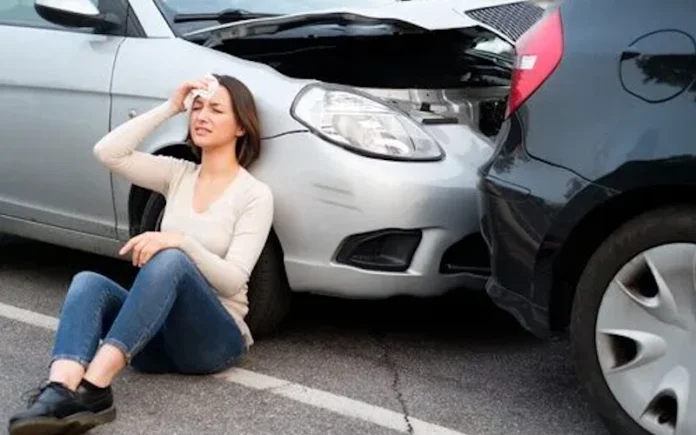Car accidents can change lives in an instant, with impacts that go beyond physical injuries and vehicle damage. They also bring emotional and financial challenges, underscoring the importance of road safety and preparedness.
The Emotional Toll of Car Accidents
A car crash doesn’t just leave dents on your car; it can leave lasting scars on your emotional health.
Immediate Shock & Trauma
The moments following an accident are often filled with disbelief, fear, and confusion. Even in minor fender benders, the sudden adrenaline rush can take a psychological toll.
Long-Term Anxiety
For many, the trauma doesn’t end after the initial impact. Victims may develop post-traumatic stress disorder (PTSD), leading to recurring flashbacks, nightmares, and even fear of driving. This ongoing anxiety can disrupt daily life and impact professional and personal relationships.
Depression and Emotional Strain
Beyond anxiety, victims may experience emotional distress caused by the loss of independence, physical injuries, or even the grieving process if lives were lost. Feelings of guilt may linger, especially if individuals blame themselves for the accident, even when they weren’t at fault.
Pro Tip: If you or someone you know is struggling emotionally after a crash, consider seeking help from a therapist or support group specialized in trauma recovery.
The Financial Burden of Car Crashes
Beyond the emotional aftermath, car accidents can take a massive financial toll that extends far beyond the repair shop bill.
Medical Expenses
Even with insurance, the cost of medical treatments can pile up quickly. From emergency room visits, surgeries, and physical therapy to long-term rehabilitation, the expenses can overwhelm many families. And for those without comprehensive coverage, the financial burden can be devastating.
Lost Income
For individuals recovering from injuries, time off work is often unavoidable. However, the loss of income during this period can create financial strain, especially for those in jobs without paid medical leave.
Vehicle Damage and Repairs
Repairing a car—or worse, replacing one—can be a significant expense. Insurance may cover some of the costs, but deductibles and uncovered damages can leave victims paying out-of-pocket.
Legal and Liability Fees
If lawsuits arise, legal fees can escalate quickly. Whether you’re fighting a claim or pursuing one, the financial and mental stress of dealing with courts and attorneys, including working with an auto accident lawyer like those in Utah, can add another layer of difficulty.
Increased Insurance Premiums
Even if you’re not at fault, being involved in an accident can lead to higher insurance premiums. Drivers may find themselves paying significantly more over several years due to a single incident.
Accessibility Modifications
For individuals with permanent mobility issues resulting from a crash, vehicles and homes may need accessibility modifications—another hidden yet necessary cost to cover.
“Soft Costs” That We Don’t Always Recognize
Beyond the direct emotional and financial impacts, car crashes can also affect your lifestyle, dreams, and family life in subtle yet profound ways.
- Loss of Time: Between medical treatments, legal appointments, and dealing with vehicle repairs or disputes, car crashes can rob victims of valuable time they could be spending on work, hobbies, or family.
- Interrupted Plans: Goals like saving for a house, a child’s college fund, or retirement can be pushed back due to sudden financial obligations.
- Relationship Strain: Financial difficulties or helping a loved one recover can put stress on relationships, which may already be fragile following an accident.
How Can You Protect Yourself?
While no one plans to be in an accident, there are proactive steps you can take to reduce both the emotional and financial burdens if it does happen.
- Ensure Adequate Insurance Coverage: Comprehensive car insurance is key. Look for plans that cover medical expenses, lost income, and liability.
- Set Up an Emergency Fund: Having savings set aside specifically for unforeseen emergencies can offer some peace of mind, should a crash force unexpected spending.
- Maintain Your Vehicle: Routine maintenance can prevent avoidable mishaps caused by mechanical issues or wear-and-tear.
- Practice Defensive Driving: Reducing your risk of a crash through careful and attentive driving is always the best way to save.
- Be Prepared for the Aftermath: Know what steps to take immediately after a crash, from filing insurance claims to seeking professional help for emotional recovery.
Conclusion
Now that you understand the full impact of car crashes, both emotionally and financially, take the necessary precautions to protect yourself and your loved ones. And remember, if you or someone you know has been affected by a car accident, don’t hesitate to seek help and support.

